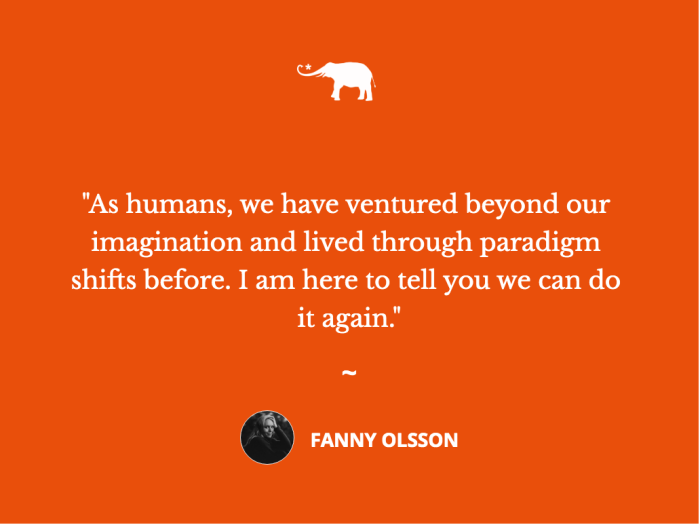As humans, we like to define things, ourselves included.
Perhaps as a result of our evolutionary past where group rivalry selected for tribalism, we tend to define ourselves based on what ties us to a certain group or differentiates us from others.
We might, for example, identify with gender, sexuality, nationality, political orientation, occupation, hobbies, personality traits, and so on. Few, however, would think to identify themselves as human, let alone as nature.
One could argue that it is so obvious that we are human and nature, that it goes without saying, but the way we act would suggest otherwise. Our behavior is driven by our thoughts, and our thoughts are a result of deep-held belief structures that are often unconscious.
As Carl Jung said, “Until you make the unconscious conscious, it will direct your life and you will call it fate.” Rather than actions born from a deep notion of shared humanity or our interbeing with all life, we see a world of polarization at the brink of ecological collapse.
Whether consciously, or unconsciously, a lot of people view themselves as apart from nature. Nature is considered something out there, something one might take a hike in, manipulate, study, commodify, or wish to protect. But even without going into metaphysics, it is easy to see that this is a cognitive illusion.
We are not apart from nature; we are nature.
There are 10 times more bacterial cells in “your” body than human cells. We consist of the same building blocks as the nature and are born from the same mysterious intelligence that sprouts the seed of the banyan tree and that each year causes the last generation of Monarch butterflies to delay their sexual maturation to undertake a 2,000-mile journey from North America to Central Mexico.
“We often forget that we are nature. Nature is not something separate from us. So when we say that we have lost our connection to nature, we’ve lost our connection to ourselves.” ~
I could spend hours speculating on why this cognitive divide has taken such deep root in the shared consciousness of our civilization—a word (civilization), by the way, defined by the Cambridge Dictionary as, “Human society with its well developed social organizations, or the culture and way of life of a society or country at a particular period in time, or as a place that has comfortable living conditions.” (How comfortable the living conditions of our civilization are when they lead to an array of lifestyle diseases could, of course, be questioned.)
But if there is anything I have learnt from dealing with my own cognitive errors it is that it is far more fruitful to deal with the thought pattern and its resulting behavior than trying to find the exact moment or reason why it showed up in the first place.
Just imagine a civilization where our nature-ness was an organizing principle rather than anthropocentrism and tribalism. Where we have transcended egocentrism for ecocentrism. Where instead of pouring money into developing artificial realities and short-term solutions, we invested in projects to reharmonize our “comfortable living conditions” with nature. A utopia, some would argue, but I’d rather believe in the seemingly impossible than settle for an unsustainable status quo. As humans, we have ventured beyond our imagination and lived through paradigm shifts before. I am here to tell you we can do it again.
How? It starts with each and everyone one of us. Just as we are micro systems within the living macro system of nature, our cognitive patterns are micro webs within the macro web of our culture. The culture shifts when we shift.
Every day, start to reorient to your inseparability with nature. Take charge of your habits and mental health. Spend time outdoors, often! Remember that you are wild.
~










Read 1 comment and reply